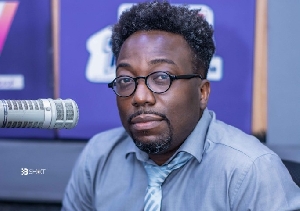Approximately, 50 million people worldwide live with epilepsy, making it one of the most common neurological diseases globally according to the World Health Organization.
Irrespective of the frustrations that come with the disease, the Larbie family of 4 including 2 girls have dedicated their personal resources to correct the misconception that epileptic patients cannot procreate.
The 2016/2017 Sandwich Diploma 2 students of the University of Education Winneba, as part of their academic work, made a presentation on issues of global concern including epilepsy.
With the Larbie family as resource persons, the group’s presentation was on ‘Epilepsy and Society, What one Needs to Know.’
Epilepsy involves seizure: a sudden attack, unconsciousness, and violent movement of its patients when there is a brief disturbance in the electronic function of one’s brain.
Head injuries, stroke, prenatal and perinatal care, among others have been identified by experts as causes while missed medication, malaria fever, stress are listed as triggers of epilepsy.
Meet the Larbie family, Thomas Papa Nii Larbie the father, Francisca Aba Larbie the mother, Pearl Naa Astwei Adjetey-Larbi the 1st child and Albert Naa Ayokor Adjetey-Larbie the 2nd child.
Now 43, Francisca, the only one who lives with the disease says she was 6years when she diagnosed as an epileptic, and growing up, she chose to be a day student during high school due to the disease.
“I got the opportunity to go to school because in the beginning it only happened at night, but later it began to happen under broad day light so I couldn’t go to boarding school,” she told 3news.com.
She says she is quick to inform people around her to prevent them from abandoning her when seizure happens.
Blessed with two kids, the family is convinced of creating an impact in the society. Though it was discouraging at first, as Thomas describes the condition of his wife, after 10 years of marriage, he has come to learn how to cope with it.
He is now an advocate and justifies why they involve the kids in the advocacy.
“Persons with epilepsy can give birth, and the fact that the mother has it does not mean that the children will have it, so I involve them in several forms of advocacies like documentaries.”
Francisca says access to medications over the years has never been easy and wants policy makers to include all epileptic medications on the National Health Insurance Scheme to make it available for all persons with epilepsy who suffer to access medications due to lack of funds.
“What is the use when a doctor prescribes and you cannot access the medication?,” she questions and adds that “Doctors should not be restricted to 4 drugs on the NHIS as the only options"
The family is sure when enough funds are provided for the advocacy, attention will be drawn to the challenges of medication accessibility. The family hopes to increase its advocacy and demystify the medical condition as Monday February 13, 2017 has been fixed as International Epilepsy Day.
Health News of Saturday, 28 January 2017
Source: 3news.com













